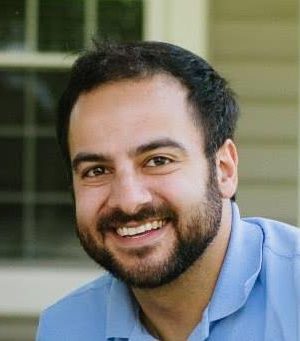Brett Agypt

Brett Agypt
What are your greatest memories of OS?
As crazy as it sounds, my greatest memories of OS are the hours and hours spent discussing and debating the various articles, chapters, and books we read in our different courses. It may seem ridiculous to someone that you can interrogate and challenge decades of organizational theory and still find practical implications for those experiences, but I have found that those conversations have prepared me more for my work as a practitioner than any technical or subject matter training ever could.
In reflecting back, what are the top three things you are taking away from the program?
I would say that the three top takeaways for me would be to:
a. Always seek methodological rigor in your work
b. Always ground any and all analyses (qualitative, quantitative, and everything in between) in theory
c. Always look to your colleagues to make them – and yourself – better
What advice do you have for new students on how to succeed in graduate school?
Before you begin, understand that you are about to engage in the most grueling and rewarding experience of your life. Invest in relationships with those who are sharing your experiences – they will provide stability, support, and sanity when you need it most.
What job search tips do you have for current students?
Much like voting, apply early and often, and customize your application materials (and your CV or resume) accordingly to ensure you are positioned as well as possible for that role. Also, consider the specific type of role you are seeking as well as the broader career experience and path that most interests you. For instance, if you want to teach, do you want to do so in a setting wherein you’re primarily doing research and interacting minimally with students, or do you want to teach a 3-3 course load (3 courses in the Fall, 3 in the Spring) with lower research expectations? If you’re considering the applied world, do you want to have deep but short-lived experiences with an organization that is typically characterized by a high amount of travel as well as compensation(i.e., an external consulting role), or do you want to have longer, more invested experiences with an organization (i.e., an internal HR or strategy role)? It’s not as easy as one might think to jump from one role to the next, so consider what you want long-term before jumping into a career track.
What about for preparation for going on the job market?
If you’re going academic, look for research experiences early, even those that don’t especially interest you. It is more important to get research reps, teaching experiences, and publications under your belt early than to study the single thing that you find most interesting. Once you get a job, you can set your own research agenda and pursue it with as much vigor as you want. Interestingly, it’s been my experience that, if you have the intellectual curiosity that drives organizational science graduate students at their core, then you will inevitably find your early research experiences will become compelling and engaging.
If you’re going applied, look for applied experiences early, and seek opportunities to touch human capital processes that may seem new, foreign, or just plain boring to you. Understanding the subject matter informs your ability to change and improve it in an applied setting. You will share that subject matter expertise with those who took the more traditional (i.e., non-academic) route to talent-related roles, but you will be able to apply your research skills to truly differentiate yourself and your contributions and improve the organization’s workplace as a result.